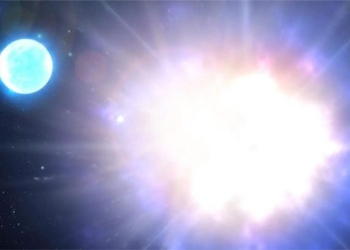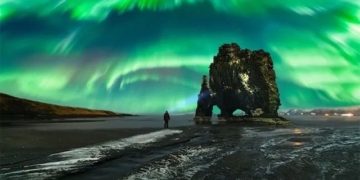An AI has been utilized by Dutch scientists to create a treasure map of extraterrestrial objects in Antarctica, where it is believed that 300,000 cosmic artifacts remain hidden.
According to Dr. Veronica Tollenaar from Delft University of Technology (Netherlands), artificial intelligence (AI) will assist them in producing a “treasure map” with over 80% accuracy, guiding future excavation efforts.

Collecting a meteorite in Antarctica – (Photo: Delft University of Technology).
The map was created by calculating and balancing numerous parameters to identify areas where meteorites are likely to be found with a high probability. The dataset includes satellite observations of temperature, ice flow velocity, surface cover, and the geometric structure of icy regions, all of which help forecast the areas rich in meteorites with considerable accuracy.
Science Alert cites the research team’s explanation: meteorites fall all over the world, but the Antarctic environment makes them easier to excavate. However, searching for meteorites in a frigid, “deadly” region with minimal life on Earth is a perilous task, making a guiding map essential.
The study also estimates that more than 300,000 extraterrestrial treasures remain concealed across the icy continent. The good news is that many “meteorite mines” happen to be located near research stations that international scientists have established over the years.

Map of “hot spots” for meteorite collection – (Photo: Delft University of Technology)
Antarctic meteorites can also offer the best quality in the world, as they are preserved in a “cold desert” environment, maintaining their purity and remaining undisturbed by animals. Meteorites that land in Antarctica may not stay in place but can be moved by glaciers; thus, the Dutch scientists’ AI tool also considers these factors to determine where meteorites are gathered by glaciers.
In particular locations like the Transantarctic Mountains, glaciers collide with mountains, bringing meteorites to the surface, making these areas prime spots for scientists to collect a significant number.
Meteorites often conceal many intriguing details about the history of the universe, with some types expected to shed light on our own origins.





















































